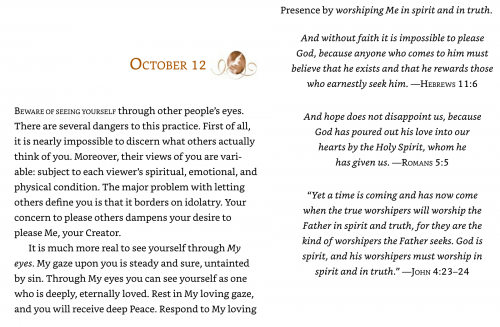What Do We Do with Evil?
A
Negative Matrix
Monday, October 12, 2020
One reason we lost interest in the concept of sin is because we usually heard it being used to judge, shame, exclude, or control others or ourselves. Seldom was the concept of sin used to bring discernment or deeper understanding, much less compassion or forgiveness, to the human situation. My conviction is that sin became a less useful idea for many of us because we needed to move around in a different field to regain our notion of the deadly nature of true evil. If we are honest and perceptive, we surely see that actual evil often seems to “dominate the very air” and is much more the norm than the exception.
I’m convinced the apostle Paul’s teaching about the nature of sin reveals his spiritual genius. For him, sin is not primarily individual fault, but the negative matrix out of which both evil and enlightenment arise. Paul (or the school of Paul) wrote in Ephesians: “You were dead through the crimes and sins that used to make up your way of life, when you were living by the principles of this world, thus obeying the ruler who dominates the very air” (2:1‒2). This compact sentence seems to be pointing to at least three sources of evil, which would eventually be called the flesh, the world, and the devil in early Catholic moral theology:
1) The Flesh: “the crimes and sins that used to make up your way of life” (our personal participation in an already criminal and sinful culture);
2) The World: “living by the principles of this world” (since most cultures are based on false or superficial agreements about value, dignity, and success). By world, Paul is not referring to creation or nature, but rather what we might call the system;
3) The Devil: “the ruler who dominates the very air” (the illusions and deceits which so totally control the field of consciousness that most of us cannot see them; it is the very air we breathe).
Up to now, most Christians have placed almost all of our attention on the level of the “flesh,” policing sexuality and various “unclean” acts rather than addressing the more serious and pervasive forms of corporate injustice and evil. We have had almost no education in or recognition of what Paul meant by “the principles of the world” and even less on what he meant by “the ruler who dominates the very air.” When we imagine the devil as a caricature of a red, horned figure, we are not taking evil seriously. The implications have been massive, blinding, and hugely destructive, both for the individual and for society.
What Do We Do with Evil?
The
Nature of Evil
Sunday, October 11, 2020
Over the years, it has become increasingly clear to me that we are confused about the nature of evil. We don’t seem to understand what evil is, how it operates, or what we can do, personally or collectively, to reduce its power over us and its impact on our world. We really must face these questions, even if they are difficult and unpleasant to think about. Our planet’s life-sustaining systems are disintegrating. Authoritarianism is emerging all over the world. Since the pandemic began, the physical and mental health of millions has been deteriorating. Evil is clearly at work in our world, but what can we do about it?
I do not pretend to have the answers to such a big question, but what I can offer is the wisdom of the Christian tradition. For the first thousand years of Catholic Christianity, it was assumed that there were three sources of evil: the world, the flesh, and the devil. I will unpack the meaning of these three sources of evil this week.
Over centuries, we became very used to equating evil with individual “sins” and we lost a sense of its collective nature. The word “sin” often serves as a label applied to various cultural taboos and expectations, frequently having to do with purity codes. That seems very different from the real evils destroying the world! Of course, moral development and impulse control are important individual disciplines, but the conflation of personal sin with the source of evil is a terrible misunderstanding which has led to tragic consequences. Perhaps so many of us stopped using the word “sin” because we located it inside of our own small, cultural categories, with little awareness of the true subtlety, depth, and importance of the much more devious concept.
When small, easily forgivable transgressions are labeled “sins” and equated with evil, we trivialize the very real notion of evil and divert our attention from the real thing. Before it becomes personal and shameable, evil is often culturally agreed-upon, admired, and deemed necessary. The apostle Paul already had the prescient genius to recognize this, and I believe he taught that both sin and salvation are, first of all, corporate and social realities. In fact, this recognition could and should be acknowledged as one of his major contributions to history. I believe it still will be.
We largely missed that essential point, and thus found ourselves in the tight grip of monstrous social evils in Christian nations, all the way down to the modern era. Thus we also lost out on the benefit of a corporate notion of salvation that far exceeded anyone’s individual worthiness or unworthiness.
We are all guilty with one another’s sin and not just our own.
We are all good with one another’s goodness and not just our own.
My life is not just about “me.”
